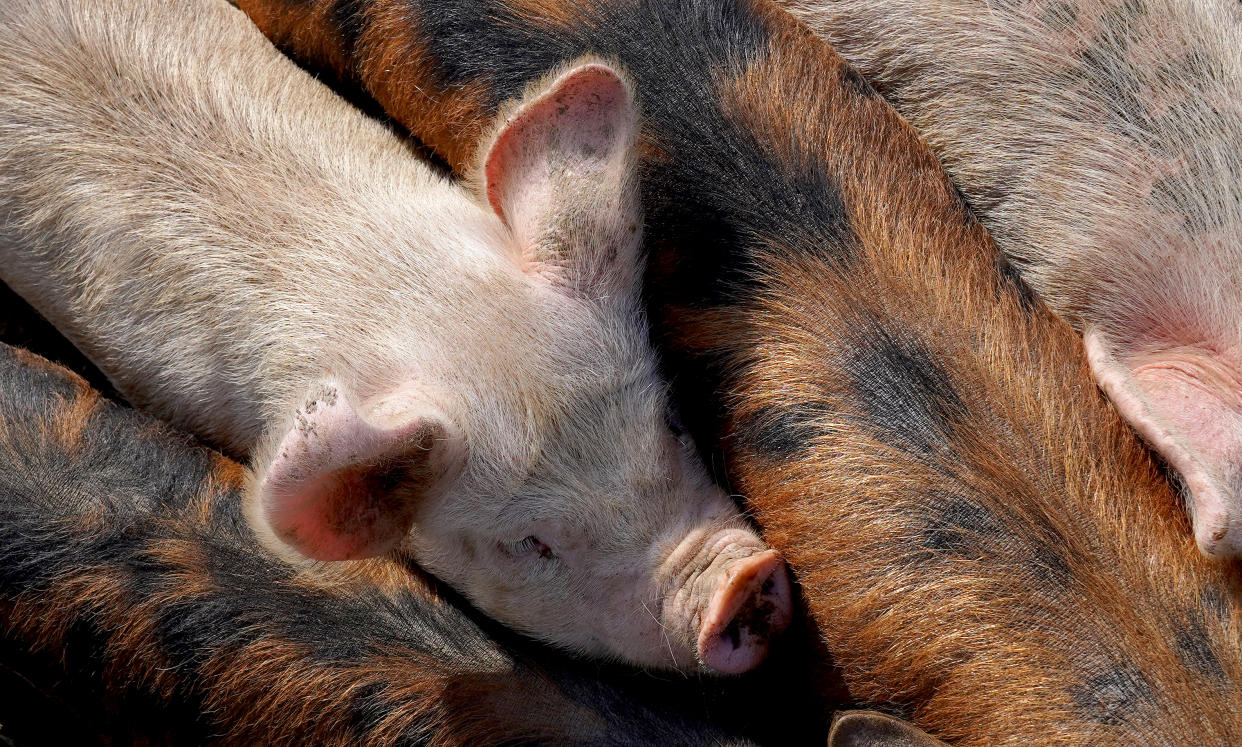Thousands of healthy pigs may have to be destroyed as labour shortage leads to surplus

The pig industry is the latest to be hit by the UK's labour shortage crisis.
Staff shortages have hit pork production and haulage, causing backlogs on farms. Slaughterhouses are running well below capacity, which means there are some 15,000 extra pigs on farms every week, even though consumer demand for pork remains strong.
Nationwide, there are now 70,000 surplus pigs, out of a total 5 million.
Slaughter levels remain “far below those seen last year”, the Agriculture and Horticulture Development Board said. They were 16% (30,000 pigs) lower in the week to 21 August, compared to the same week in 2020.
Surplus pigs means farms have to spend more money on feed as well as pay fines charged by processors for pigs that are too fat.
Zoe Davies, chief executive of the National Pig Association (NPA), said that “unless the UK government does something to facilitate access to the labour that is needed to run the pork processing plants, these perfectly healthy animals may have to be destroyed”.
Read more: Roast potatoes and pigs-in-blankets: the Christmas foods under threat
A shortage of staff is exacerbating a surplus problem that already existed due to red tape after the UK left the EU. At the time, the NPA had said there were 100,000 animals in the UK unable to enter the food chain.
The association had warned in July that the pig sector is edging closer to "a major crisis".
The current labour shortage is being driven by a combination of stricter rules on EU workers coming to the UK due to Brexit and the furlough scheme (which ends next month), as well as the "pingdemic" that has resulted in thousands being told to isolate by the NHS Test and Trace app.
The government has so far resisted calls to add butchers to the list of occupations facing shortages. Doing so would make it easier for those applying for specified jobs to secure visas.
“The pandemic has merely compounded the labour shortages that experts explicitly predicted if the prime minister signed his wafer thin Brexit deal," Naomi Smith, CEO of Best for Britain told Yahoo Finance UK.
She added: "So-called project fear is very much now 'project here' and because the government refuses to improve its self-defeating immigration strategy, thousands of animals could die for nothing."
Meanwhile Shevaun Haviland, director general of the British Chamber of Commerce, said: "If the government wants to avoid further disruption for consumers and businesses in the coming months, then it needs to make use of our ability to flex our immigration policy in response to challenges like this."
The government has instead told employers to improve working conditions and raise salaries to attract workers, which could ultimately drive up food prices.
"The last thing businesses want to see is consumers being faced with rising prices or limited options, but without action from government both are inevitable consequences," said Haviland.
Earlier, the British Meat Industry Group had warned that meat companies are about six weeks behind their Christmas production schedules.
“It now looks inevitable that there will be a shortage of the more complicated lines like pigs in blankets and gammon roasts. Given the current workforce shortages, meat companies are finding it difficult to see how they’ll dig themselves out of this,” it said.
Watch: What is a V-shaped economic recovery?


